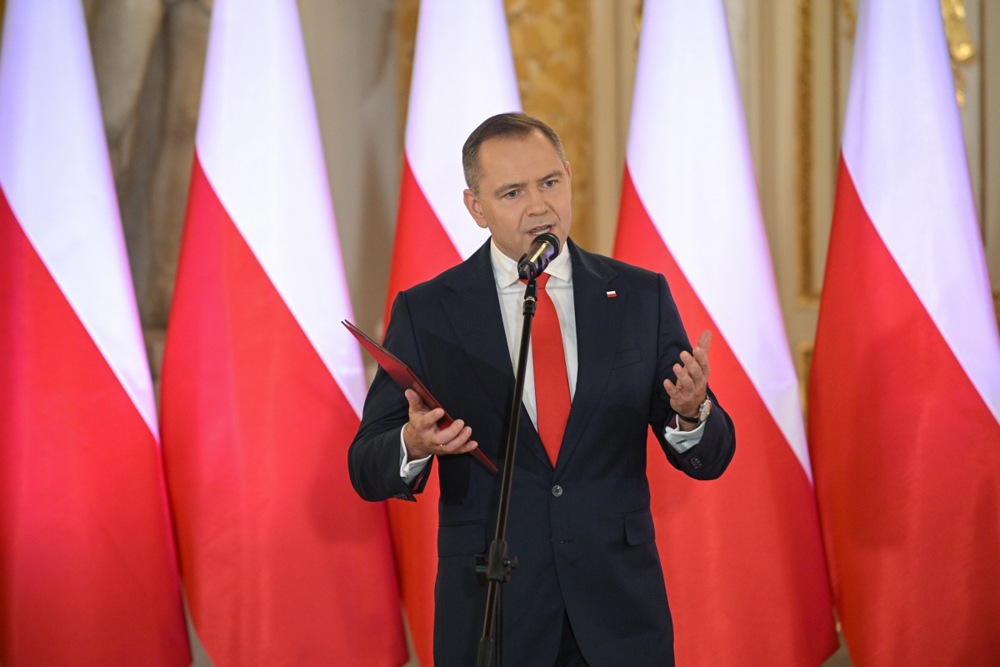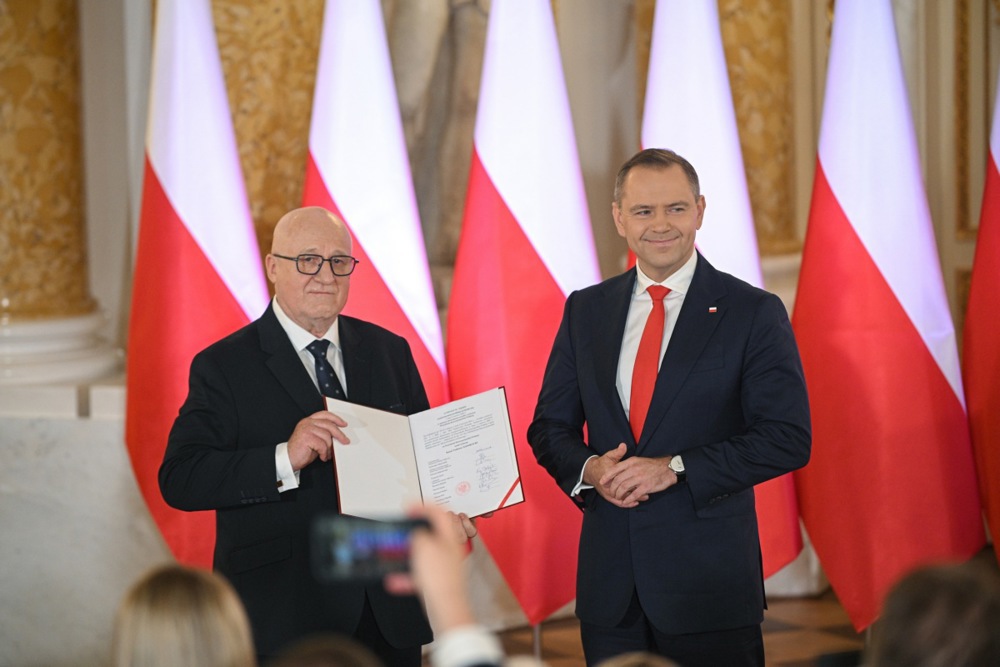Poland’s president Karol Nawrocki and prime minister Donald Tusk have clashed publicly during a meeting of the Cabinet Council over the government’s record on public debt, with Poland now having the second highest government deficit in the EU.
Newly-installed Nawrocki, who is allied with the opposition Conservatives (PiS), said during a meeting of the ‘Cabinet Council’ that Poland’s deficit was now so high that it was clear something was going “wrong”.
“When one reads that we have a 35 billion Euro deficit, for me it’s a clear signal for alarm that something’s wrong,” said Nawrocki. He later added that he would oppose any tax hikes to make up the deficit.
“Man to man, simply and directly, I would like to know what the Polish government has managed to do in 18 months so that we would not be facing such major problems with public finances”, Nawrocki said.
Tusk hit back by arguing that his government had inherited high inflation and a stagnant economy back in late 2023 and had managed to turn that around to record one of the highest economic growth rates in Europe, falling inflation and record low unemployment. He did not address the issue of the rising public debt.
Inflation had already fallen under the previous government after the bout caused by post-Covid disruption and high energy costs. Unemployment was no higher than it is today and economic growth was also increasing after a Covid dip.
Poland’s budget deficit is the second highest in the EU after Romania, and is set to exceed 6 per cent for the second straight year in 2025. The country’s total public debt to GDP ratio of 55.3 per cent is however well behind the figures recorded by Greece, Italy, Belgium and France, whose public debt is over 100 per cent in relation to their gross domestic product.
Polish debt has however risen from 49.5 per cent in 2023 to 55.3 per cent in 2024, fuelled by a surge in government borrowing that helped to push the budget deficit to 6.6% of GDP.
The debt in Poland rose by close to 80 billion Euro, an increase of 19 per cent which represented the second fastest annual hike since the 28 per cent Covid spike in 2020.
Budget deficits in the EU have seen increases in several Member States. The largest debt ratio increases were in Romania, Poland, and Finland, driven by government borrowing to cover deficits.
Under EU fiscal rules, member states with a budget deficit above 3 per cent of GDP or public debt exceeding 60 per cent face legal action. But because of Poland’s increased defence spending needs in light of the war in Ukraine, the country has petitioned the EC to be excluded from the procedure and the budgetary constraints it imposes.
During the meeting Nawrocki also questioned Tusk on the implementation of the central airport project that had begun under the previous PiS administration. Tusk’s party had originally opposed the plans, stopped implementation on arriving in office, but following a public backlash announced last year that it would go ahead in a scaled down version.
The president has already submitted legislation to parliament that would return the central airport project to its former scale, including additional rail links to help smaller cities and regions. He has argued that the government should not sacrifice projects that can drive future economic development in order to tackle the public debt.
“This is not a political project. It unites political circles, it is important for Polish men and women, and I care deeply about this matter”, Nawrocki said, pointing to the fact that the public campaign in favour of the Central Airport had united people across the political spectrum.
Tusk and Nawrocki also clashed over the Mercosur agreement between the EU and South America with the head of state criticising the government for doing too little to stop the agreement, which he believes is against the interests of Polish farmers.
Tusk replied that the previous PiS government had failed to bring grain imports from Ukraine under control, an issue which he claimed his administration had succeeded in managing, but admitted that Poland, thus far, did not have a sufficient number of allies to block Mercosur in the EU.
The prime minister’s most provocative move came when he contemptuously dismissed Nawrocki’s vetoing of the legislation easing the construction of wind farms and declared that “wind turbines will be built and we will find ways to intensify our activities here by means of administrative regulation, so a veto here will not be effective”, without giving further details.
This led Nawrocki to interrupt Tusk, saying that “I think we’re getting off the topic. We could talk about turbines, but that’s not why I invited you”. The meeting had been called on the state of public finances and infrastructural projects, issues the prime minister was less keen to discuss.





